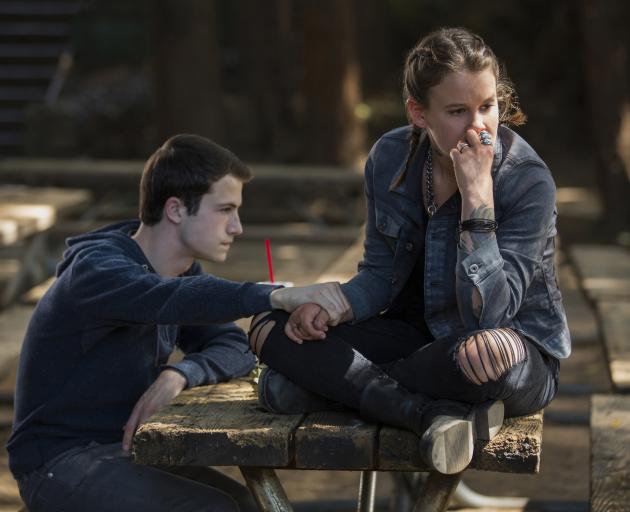
Pam Jones binge-watched the first season of 13 Reasons Why like a teenager, sobered by the violence and betrayal it depicted in our children’s lives. As society comes to grips with the release of season two, she reminds families to prepare for another round of teenage viewing.
You cannot pretend it does not exist, and you cannot keep it away from your children.
What are parents meant to do about the release of another pervasive, life and death series of teenage angst, a series that throws bullying, sexual violence and suicide in our faces, whether we want them there or not?
The second series of 13 Reasons Why is upon us, and it is as confronting, controversial and unapologetic as the first one.
Like last year's first season, the show's creators say it will be painful and uncomfortable to watch.
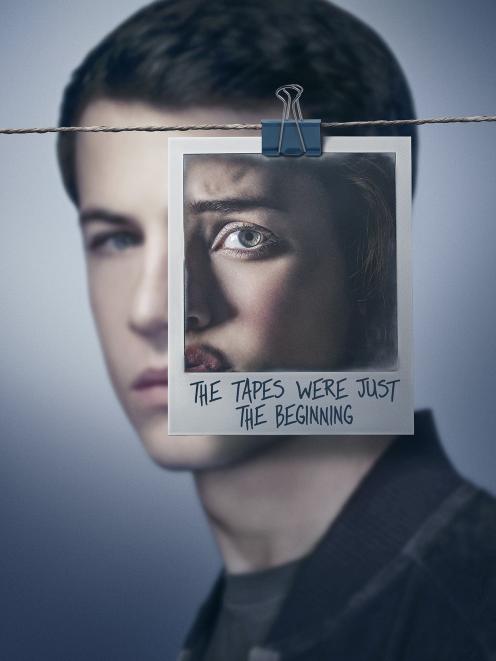
Like last year, they say that is the intended effect. They want it to be as realistic as possible, and remind people that suicide is a pain that never ends.
And like last year, it is available for anyone to watch. If you or your teenager have an electronic device and a Netflix account, 13 Reasons Why season two will come straight to you.
The series, as with season one, has an RP18 classification from New Zealand's Classification Office (CO), meaning someone under 18 must be supervised by a parent or guardian when viewing the series.
A guardian is considered to be a responsible adult (18 years and over), for example a family member or teacher who can provide guidance.
In today's online world the classification means little in a practical sense, but the CO provides good advice to parents navigating the series, warning parents and caregivers of vulnerable children and teenagers to be prepared.
"If a child you care for is planning to watch the show, you should sit down and watch it with them; if not together then at least around the same time,'' chief censor David Shanks says. "That way you can at least try to have informed and constructive discussions with them about the content.''
He says the CO has no problem with content being produced for young people that addresses issues in a realistic way.
"But what we are concerned with is whether this material is actually realistic, and delivered in a safe and responsible manner. Many young people will watch 13 Reasons Why season two and not be negatively influenced by it: in some cases it could have value in starting conversations about real issues for teens.
"Approximately one in five young New Zealanders will have experienced a mental health problem in the last year. One in three girls will be subject to an unwanted sexual experience by the age of 16, and approximately one in seven boys.
"This is the audience we are worried about; individuals who have been personally affected by the issues in the series. Suicide bereavement and sexual assault are both recognised risk factors for suicide. Young viewers in a heightened state of distress will be more vulnerable to the impact of the show - they can be put at risk by viewing it.''
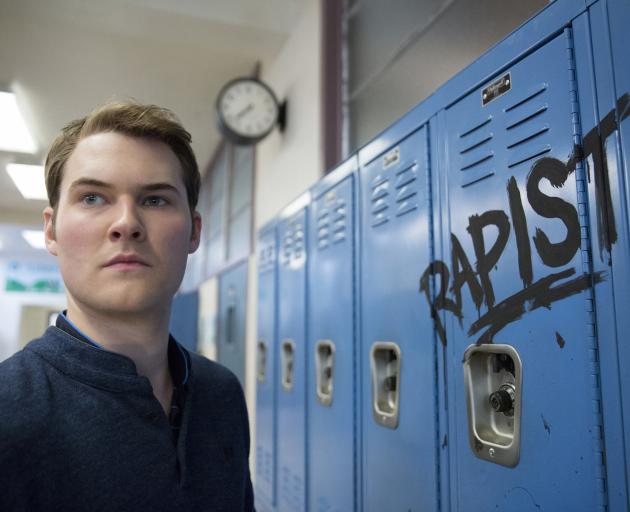
Messages from the show's cast and creators on a 13 Reasons Why online resource provide similar messages that should be heeded by families.
Alisha Boe, who plays Jessica Davis, says in her clip: "If you are struggling with these issues yourself [suicide, sexual violence and bullying], this series may not be right for you, or you may want to watch it with a trusted adult''.
Dylan Minnette, who plays Clay Jensen, says: "If you ever feel you need someone to talk with, reach out to a friend''.
The advice is vital, as debate still rages between young people and adults in the mental health sector about whether the series is helpful or harmful, necessary or gratuitous.
Teenagers generally defend the series, saying it shows the reality of teenage life in the 21st century, complete with cyber bullying, not understood by parents, and a level of "slut shaming'' and sexual violence, particularly against girls and women, that is unprecedented.
But some academics, psychiatrists and mental health experts, in particular those from overseas, warn against watching the series, worried about suicide contagion, which they say has occurred with some teenagers who have binge-watched the series, particularly in the United States.

CENTRAL OTAGO school counsellor Julie Williamson, who works at Dunstan High School, in Alexandra, provided a local and level head when commenting on the first season last year and provides similar context this time around.
She has watched three of the 13 episodes so far, saying that "working with teenagers and having teenage children it is important that I view 13 Reasons Why, and can attempt to understand how our teenagers are thinking and feeling about the show''.
She believes most teenagers will understand the show is fiction, and produced to make money.
Most would not need additional support after watching the show. However, she said there was "little doubt'' the show would trigger unsettling emotions for some.
"As a parent, you are the most likely to know what previous experiences they [teenagers] have had with the issues the show explores. If you know your child is vulnerable and they are watching the show, it is important that you monitor their viewing. Encourage them to watch one episode at a time, then go out and do normal everyday social activities in between.
"As adults that care for teenagers we might see the series as a problem, try hard to ban it and other shows like it. But we want to support our teenagers to develop self regulation and learn how to manage their emotions, by having conversations about the harder stuff, not avoiding them.''
A collective, nationwide district health board statement also advises that restricting young people from watching the series is unhelpful, as they may then hide their distress from adults.
"Where a young person is already in a vulnerable space, it may be wise to suggest they delay watching the series, or watch with an adult to allow for ongoing shared conversation around the topic.''
The statement suggests a range of resources for young people and their families to use, including that of the Mental Health Foundation.
Foundation chief executive Shaun Robinson, who last year said he could see "both sides'' of reaction to season one and has already watched season two, said the second season continued to explore topics "that young people in New Zealand face every day''.
"We encourage young people who are affected by some of the heavier topics in 13 Reasons Why such as suicide, rape and bullying to not watch the show if they think it will distress them. We also encourage all viewers not to binge-watch the show, but to take regular breaks and think carefully and critically about what they have watched.''
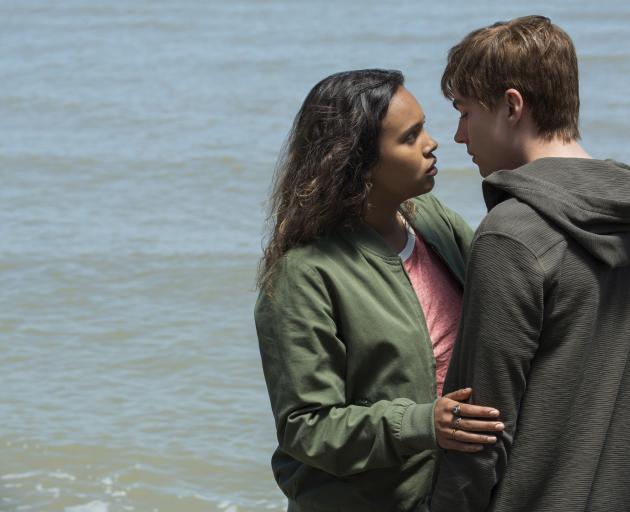
SO what do young people think?
Last year, I found only one article online written by a young person, who, coincidentally, was from Central Otago.
University of Otago student Maddie Grant (21) attended Dunstan High School and is a suicide survivor.
She wrote a story on the Stuff website under the pen-name of Maddie Robinson called "13 Reasons Why Matters. This is Why'', but chose to use her real name for the Otago Daily Times.
Last year, Ms Grant said she was "pretty sick of being spoken for by people who have no first-hand experience in the topic of suicide'', and asked "if concerned adults are unhappy with how suicide is being portrayed in the show and then being discussed by young people, what alternatives do you suggest? Obviously, your tactic of avoidance has not worked out well for us''.
Ms Grant said this week she thought season two - while including some harrowing content - was helpful overall to young people, and she particularly praised its focus on sexual violence and "slut shaming''.
"Whilst it [season two] may be triggering for some specific young people, the dialogue it generates is beneficial as a whole. It addresses the issues young people face and, although at times it can be hard to stomach, these issues need to be talked about. Mental health and sexual assault need to be destigmatised. Otherwise young people will continue to suffer in silence out of shame.''
And myself? Last year, it was my then 17-year-old daughter who prompted me to watch the series, having already watched it herself, partly because she was the leader of the anti-cyber bullying group Sticks 'n Stones.
She guided my viewing, our roles reversed as she watched me for signs of distress and warned me about parts I would find difficult.
This time, my daughter is far from me physically, now 18 and working and studying in Dublin.
A "classic binge-watcher,'' she has already watched almost all of season two and said she liked its altered focus, offering insight into the lives of other characters, not just the main character, Hannah Baker, and showing the "ups and downs'' and "good'' of Hannah's life, instead of just "the downs'' highlighted in season one.
She thought season two was necessary; still "hard to watch'', but providing more support for characters on screen, and for viewers.
"It offers closure to the students shown in the series but also to anyone watching it.''
I've also watched three episodes so far, and have found it less brutal and more "Hollywoodish'' (a phrase borrowed from Ms Williamson) than season one.
Is the second series of 13 Reasons Why good or bad?
It's not that simple, and parents need to inform themselves as much as possible and then watch their children and talk to them.
I feel a sense of disquiet as I prepare to watch the rest of the series. But I know I'll watch every single episode.
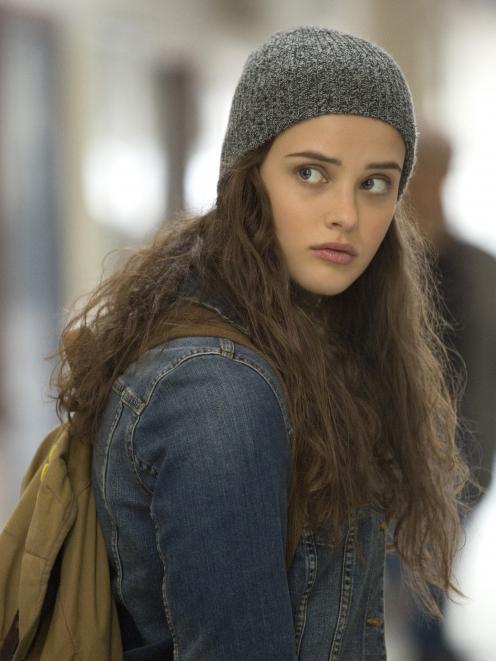
At a glance
• 13 Reasons Why is a Netflix series centred on fictional teenager Hannah Baker, who commits suicide. Before she does so she makes 13 tapes, each focusing on a person in her life who, she says, contributed to her death; the tapes are delivered to all 13 people. Season one was released last year, season two has just been released.
• Season two is centred on a court case after Hannah’s parents take out a lawsuit against Hannah’s school for failing to protect her and explores who, if anyone, contributed to her suicide. Both seasons feature bullying and intense violence, including strong scenes of sexual violence, and in season one the suicide method is clearly shown, contravening established health guidelines.
• There's a variety of online resources about the show:
www.mentalhealth.org.nz/get-help/13-reasons-why/
www.classificationoffice.govt.nz/news/featured-classification-decisions/...
Where to get help
If you are worried about your or someone else’s mental health, the best place to get help is your GP or local mental health provider.
However, if you or someone else is in danger or endangering others, call police immediately on 111.
OR IF YOU NEED TO TALK TO SOMEONE ELSE
• Lifeline
0800 543 354 (available 24/7)
• Suicide Crisis helpline
0508 828 865 (0508 TAUTOKO) (available 24/7)
• Youthline
0800 376 633
• Need to talk?
Free call or text 1737 (available 24/7)
• Kidsline
0800 543 754 (available 24/7)
• Whatsup
0800 942 8787 (1pm to 11pm)
• Depression helpline
0800 111 757
• Samaritans
0800 726 666














